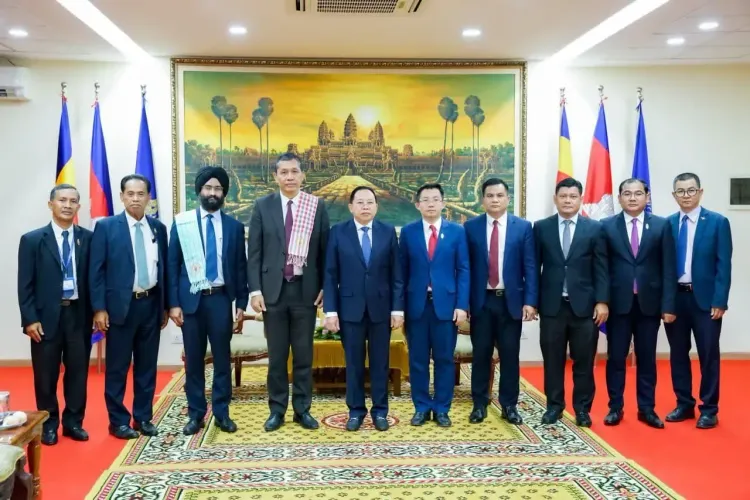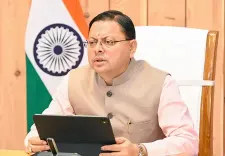India and Cambodia Enhance Buddhist Connections

Synopsis
Key Takeaways
- Strengthening Buddhist Links: India and Cambodia are enhancing their Buddhist ties.
- Religious Tourism Focus: Collaboration includes promoting religious tourism.
- Buddhist Relics Exchange: Plans are in place to bring Buddhist relics to Cambodia in 2026.
- Support for Monks: India continues to assist Cambodian monks and Buddhist institutions.
- Cultural Exchange: A Cultural Exchange Programme has been ongoing since 2000.
Phnom Penh, Feb 12 (NationPress) India and Cambodia are actively enhancing their Buddhist linkages, particularly in the realm of religious tourism. The Indian Ambassador to Cambodia, Vanlalvawna Bawitlung, met with the Cambodian Minister of Culture and Religion, Chay Borin, to explore avenues for strengthening various cultural collaborations.
During their discussions, they also addressed the expansion of partnership in religious affairs and outlined plans for the transfer of Buddhist relics from India to Cambodia in 2026.
The Cambodian minister emphasized several initiatives led by Prime Minister Hun Manet aimed at promoting Buddhist institutions.
He expressed gratitude for India's ongoing support, particularly in assisting Cambodian monks, pagodas, and offering scholarships to Cambodian students pursuing studies in India, as reported by the Cambodian daily, Khmer Times.
Aligning with PM Narendra Modi's 'Act East' policy, India's interaction with Cambodia is expanding significantly, with a special focus on fostering Buddhist linkages. New Delhi perceives Buddhism as a vital element to bolster relations with Southeast Asian countries, including Cambodia.
In 1979, India was the first nation to acknowledge Cambodia following the fall of the notorious Khmer Rouge regime, and the Indian embassy in Phnom Penh was reinstated in 1981.
India also plays a crucial role in the restoration of ancient temples and heritage sites, such as the iconic Angkor Wat in Cambodia.
Cambodian society is primarily Buddhist and exhibits a significant influence of Hindu and Buddhist rituals, idolatry, and mythology. Numerous rituals in Cambodia bear a striking resemblance to Indian cultural traditions. The Khmer language, Cambodia’s official language, contains over 3,000 words derived from Sanskrit.
A Cultural Exchange Programme (CEP) between India and Cambodia was established in 2000 and has been periodically renewed. Cultural diplomacy and Buddhism remain fundamental to India's foreign policy, nurturing stronger bilateral and regional connections.
With a significant portion of the Buddhist population residing in Asia, and India being the birthplace of Buddhism, it serves as a potent soft power tool for the world's most populous nation to assert its influence globally.










